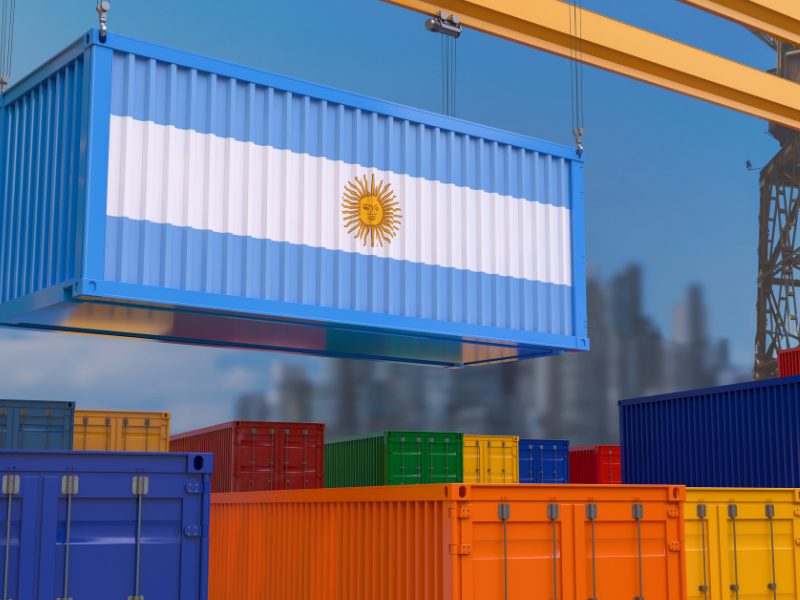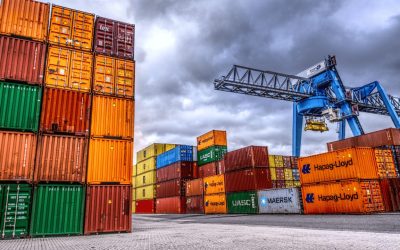Argentina has eliminated a bureaucratic requirement that had restricted the import of used machinery for over three decades.
The abolition of the Certificate of Importation for Used Goods marks a notable shift for industries that rely on imported equipment. Enforced for more than 30 years, the requirement had long delayed access to foreign technology at more competitive prices. The government scrapped it through Decree 273/2025, allowing companies to import used capital goods under an automatic approval process without the need for state involvement.
The measure eliminates a procedure that generated about 1,500 administrative filings in 2024 alone. Previously, authorization was only granted if it could be demonstrated that no equivalent product was being manufactured locally, effectively serving as an indirect economic barrier.
Industry and Competitiveness: Who Benefits from the Change
The new regulation applies across a wide range of sectors, including mining, energy, and oil and gas industries, where competitive domestic options are often unavailable. The relaxed rules provide a boost to companies seeking to cut costs without sacrificing production capacity.

According to Argentina’s Ministry of Economy, the goal is to improve industrial competitiveness and accelerate technology adoption, particularly at a time when many businesses face challenges in financing new machinery. Gaining access to used or refurbished equipment provides real relief for those looking to invest without getting entangled in red tape.
“Not every day you see a 30-year-old regulation vanish—but this one is worth celebrating,” said Maria Carolina Muller, VP of Business Development. She emphasized that eliminating the CIBU reduces hurdles and expands decision-making margins for companies: “Being able to #import #used machinery without excessive red tape means faster execution, better margins, and the confidence to move forward with new investments.”
A Window Opens for Refurbished and Used Machinery
For many businesses, the reform opens a door that had long been shut. Dan Zonnenschein, COO at Aerodoc Inc., explained: “Argentina used to be a forbidden destination for refurbished or used goods. Now, not only is there a window open—it’s become a doorway.”
Beyond unblocking processes, the new regulation allows for the entry of specialized assets that had previously been excluded due to formal limitations. Refurbished equipment, second-hand technology, machinery for large-scale projects, and tools not produced domestically can now enter the country without restrictions.

Companies active in the secondary market for industrial equipment also stand to gain. The benefits are visible in both acquisition costs and lead times. Muller called it “a meaningful shift in a country where bureaucracy has often played a starring (and sometimes obstructive) role,” linking it to a more pragmatic approach to industrial policy.
Without state-imposed barriers and with simplified procedures, importing used machinery is no longer a narrow exception—it’s now a valid tool for boosting productive capacity. The new regulatory framework opens a path for industries seeking to regain momentum in a financially constrained environment.
How This Impacts IOR and Temporary Import Services
The removal of the CIBU requirement opens up new opportunities for companies using specialized logistics solutions, such as Importer of Record (IOR) and temporary import services.
For firms operating under temporary import schemes—such as those managing testing equipment, events, or leased assets—this change simplifies compliance and shortens timelines. Logistics providers with experience in IOR services, such as Aerodoc, are now better positioned to offer faster and more cost-effective access to Argentina’s industrial and technology markets.
Would you like to understand how this change could impact your business? Contact our team of experts, who can guide you through the implications of the new import framework and help tailor an IOR or temporary import solution to meet your specific operational needs.
Q&A
- What changed in Argentina’s import regulations? The government eliminated the CIBU (Certificate of Importation for Used Goods), a requirement that had restricted the import of used capital goods for over 30 years. Imports are now approved automatically, with no state intervention required.
- Why is this relevant for companies in energy, mining, or manufacturing? These sectors often rely on specialized or refurbished equipment that isn’t available locally. The change reduces costs, avoids long approval processes, and makes it easier to access foreign technology.
- What happens to companies using temporary imports or IOR services? The reform simplifies operations for businesses using Importer of Record (IOR) services or temporary import frameworks, particularly when importing testing equipment, leased machinery, or project-based assets.
- How quickly can companies act on this change? The new rules are already in effect through Decree 273/2025. Businesses can immediately begin importing eligible used goods without CIBU-related delays.
- Who can help navigate the new system? Specialized logistics partners, such as Aerodoc, offer end-to-end support, from handling refurbished or sensitive cargo to managing IOR, customs clearance, and temporary import schemes.




